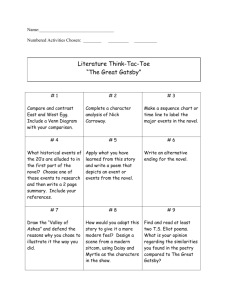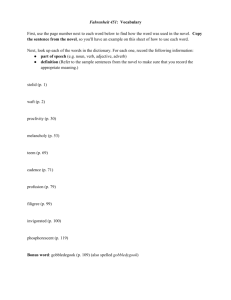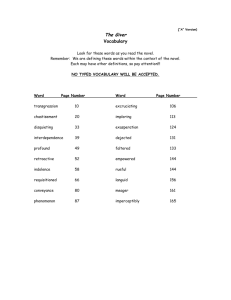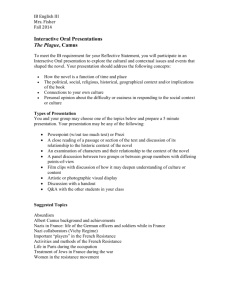Independent Reading Project
advertisement
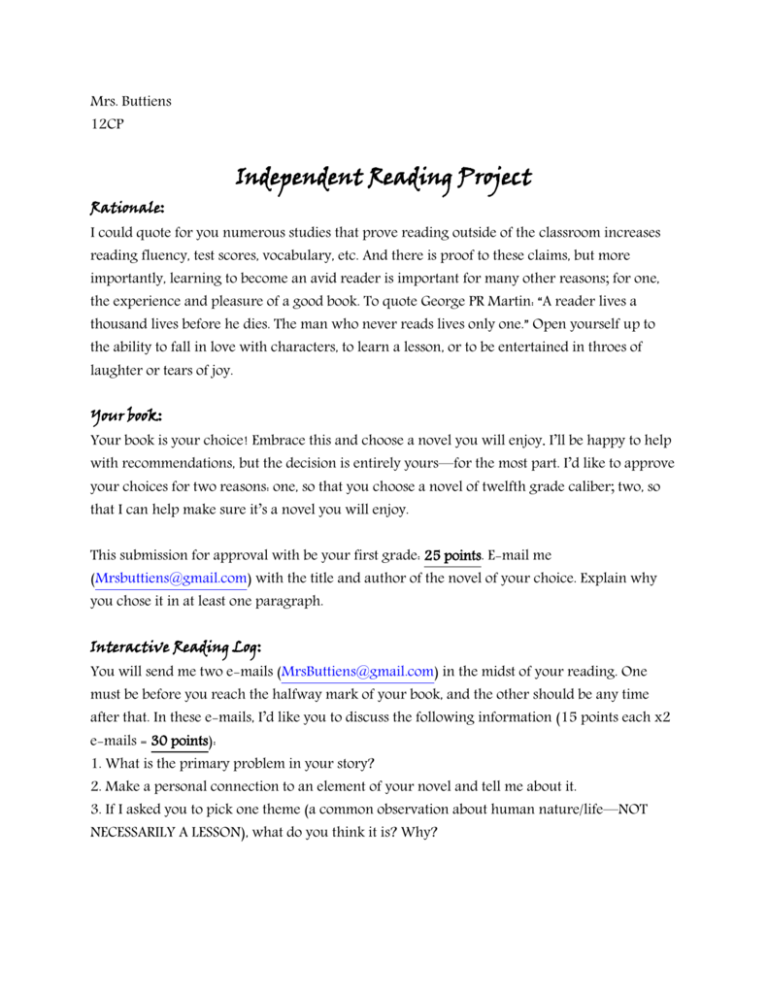
Mrs. Buttiens 12CP Rationale: Independent Reading Project I could quote for you numerous studies that prove reading outside of the classroom increases reading fluency, test scores, vocabulary, etc. And there is proof to these claims, but more importantly, learning to become an avid reader is important for many other reasons; for one, the experience and pleasure of a good book. To quote George PR Martin: “A reader lives a thousand lives before he dies. The man who never reads lives only one.” Open yourself up to the ability to fall in love with characters, to learn a lesson, or to be entertained in throes of laughter or tears of joy. Your book: Your book is your choice! Embrace this and choose a novel you will enjoy. I’ll be happy to help with recommendations, but the decision is entirely yours—for the most part. I’d like to approve your choices for two reasons: one, so that you choose a novel of twelfth grade caliber; two, so that I can help make sure it’s a novel you will enjoy. This submission for approval with be your first grade: 25 points. E-mail me (Mrsbuttiens@gmail.com) with the title and author of the novel of your choice. Explain why you chose it in at least one paragraph. Interactive Reading Log: You will send me two e-mails (MrsButtiens@gmail.com) in the midst of your reading. One must be before you reach the halfway mark of your book, and the other should be any time after that. In these e-mails, I’d like you to discuss the following information (15 points each x2 e-mails = 30 points): 1. What is the primary problem in your story? 2. Make a personal connection to an element of your novel and tell me about it. 3. If I asked you to pick one theme (a common observation about human nature/life—NOT NECESSARILY A LESSON), what do you think it is? Why? “In the case of good books, the point is not to see how many of them you can get through, but how many of them can get through to you” ~ Mortimor J. Adler Your novel and your critical thinking: You must complete three of these at 25 points each for a total of 75 points. 1. Create a dictionary of terms that would help someone reading this book. Make a list of at least ten particular words (jargon, slang, technical language, specialized terminology, etc.) that the author uses in this story. These words must be slightly out of the ordinary; they should have particular significance in the book. Define each word as it is used in the story. 2. Create a book jacket description for the story. Pretend you are trying to “hook” readers’ interest in the story by explaining its contents on the back of the book. How would you tell people what the book is about and persuade them to pick it up and read it? 3. Imagine what three of your characters would be like in high school. Cut out a picture of a person from a magazine to represent each character, underneath identify the following information based on your knowledge of the characters: a. Name and Nickname b. Activities, clubs, sports they were involved in c. Class mock award such as “class clown” etc. d. A quotation the character would choose to represent him/herself in the yearbook e. Plans after high school 4. Draw a map of where your story took place. It should contain areas where significant events happened. Use a key to describe these happenings. Be certain to include a title and label the appropriate areas. Detail, color, and accuracy are points to remember. 5. Choose three of your best developed characters, then decide if they were to surf the internet what would be the top five pages they would regularly visit? Identify the website and explain why you believe they would visit it often. 6. Like many movies, I’d like you to imagine an alternate ending to your novel. Briefly describe what you would change and why. 7. Retell the book using pictures with captions. You must have at least 15 pictures and you must take them—they cannot be found pictures in magazines/internet/etc. 8. Some books are better than others, and those tend to stand the test of time. Consider: Of Mice and Men, A Farewell to Arms, The Great Gatsby, Harry Potter? I would like you to consider whether your chosen novel would be considered a classic? Do you think people will be reading it in years to come? Why or Why not? Due Date: April 29, 2013 By 3 o’clock


